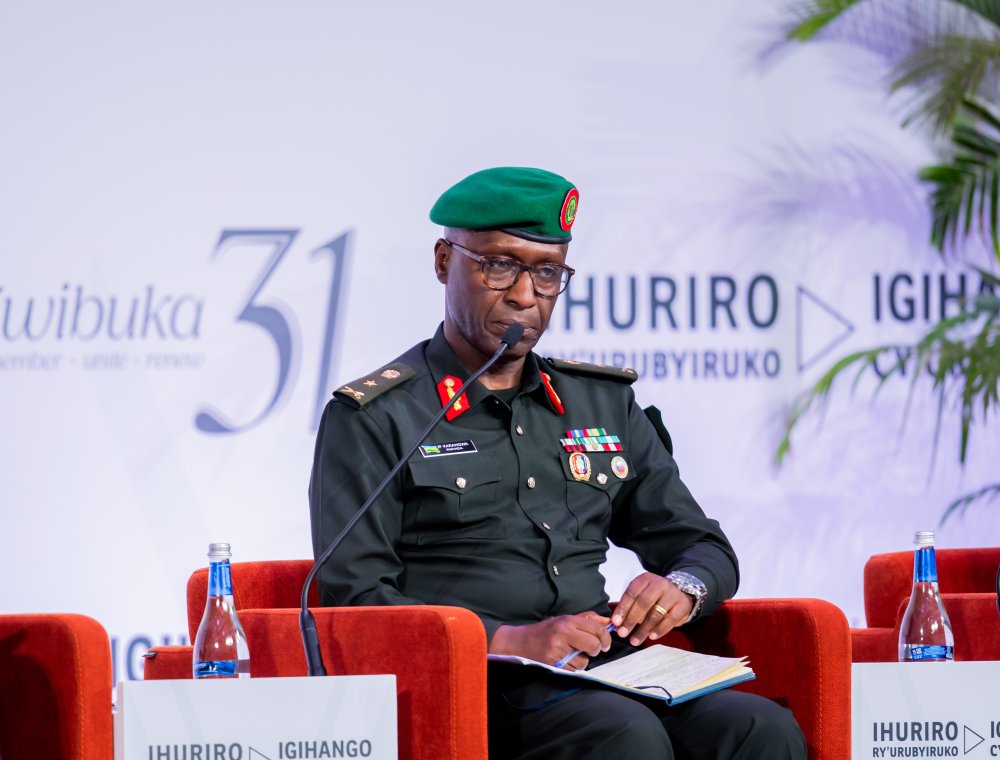The Rwanda Defence Forces (RDF) will not withdraw the defensive mechanisms in place along the country’s borders, Brigadier General Jean Paul Karangwa, the senior military representative for the City of Kigali, said on Friday.
Speaking during a panel at the “Ihuriro ry’Igihango cy’Urungano” youth forum, Brig Gen Karangwa emphasized that Rwanda’s unwavering commitment to national values — especially patriotism and discipline — remain the foundation of the country’s military posture.
“You often hear people suggesting that Rwanda should dismantle its border defenses. That is simply not possible,” Brig Gen Karangwa said. “Instead of removing them, we might even strengthen our defenses further to ensure the continued protection of Rwandans.”
He referenced recent cross-border aggression, where armed groups including DR Congo’s government forces (FARDC), Wazalendo militia, FDLR, Burundian troops, and mercenaries fired into Rwanda while clashing with M23 rebels. He affirmed that RDF was fully prepared and responded appropriately.
“They failed. You all saw what happened. And some of the equipment we used surprised many — perhaps they didn’t expect it from us,” he noted.
Karangwa praised the RDF’s conduct abroad, pointing out that discipline remains a key value distinguishing Rwanda’s military internationally, especially in peacekeeping missions in countries like the Central African Republic and Mozambique.
He recounted how Rwandan troops were initially underestimated upon arrival in the Central African Republic in 2014.
“They looked at us and asked, ‘What are these young soldiers here to do?’ But after just a month, both the population and other forces recognized our capabilities,” he recalled.
Their exemplary conduct led to RDF troops being entrusted with the security of then transitional President Catherine Samba Panza. To date, Rwandan troops continue to guard the current President of the Central African Republic — a testament to the confidence they earned through performance.
The general also issued a strong call to Rwandan youth, urging them to embody national values in their daily lives, take a firm stance against genocide ideology — even when seen in younger generations — and actively join the country’s security forces.
“Our youth have increasingly joined the ranks of our security institutions, and we encourage even more participation. We need fresh energy in those forces,” he added.
The remarks reflect a firm military stance amid rising regional tensions and renewed calls for vigilance as Rwanda continues to navigate complex security challenges in the Great Lakes region.



